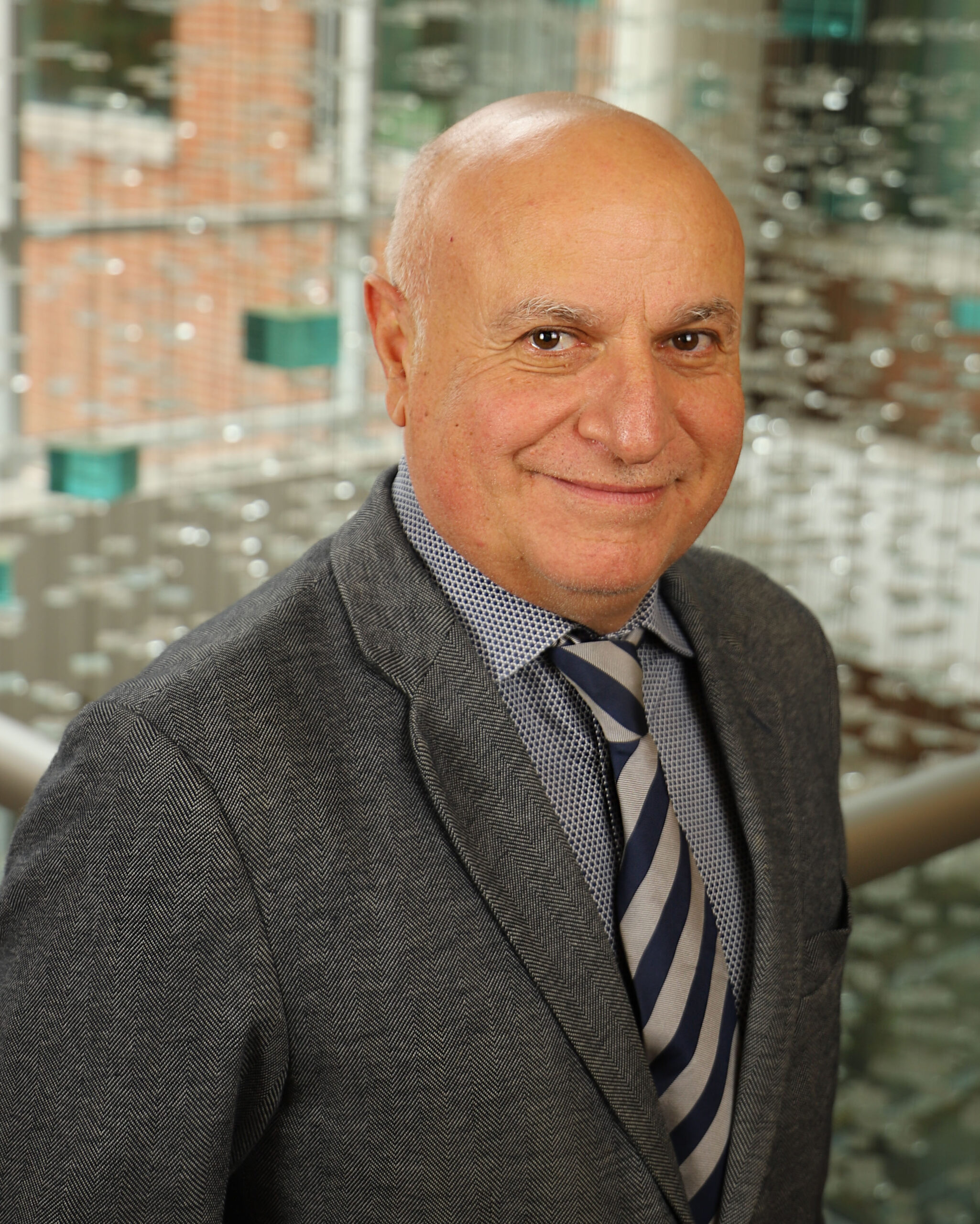
Our Faculty
Philip Demokritou, Ph.D.

Director, Division of Environmental Population and Health Biosciences - EOHSI
Henry Rutgers Chair and Professor in Nanoscience and Environmental Bioengineering
School of Public Health, Rutgers University
Adjunct Professor, Harvard University
Co-Editor in Chief, Nano-IMPACT (ELSEVIER)
Dr. Demokritou’s research interests are primarily in the areas of nano-aerosol science and technology with an emphasis on the interactions of particles with biological and environmental systems and elucidation of of health effects. His particle research spans across the exposure-disease continuum and includes the development of personal monitoring (PM) systems for use in exposure assessment and epidemiological studies, methods for the physico-chemical and biological characterization of particles. His current research focuses on interactions of engineered nanomaterials (ENMs) with biological systems, assessing the nano-bio interface and the role of ENM structure on bioactivity both in terms of nanosafety research and biomedical applications. His nanosafety research has involved development of in-vitro screening approaches for nano-specific effects (DNA damage, epigenetics, translocation of ENMs across biological barriers, etc), “safer-by-design” approaches for families of ENMs, development of advanced tools and framework approaches for in-vitro/in-vivo dosimetry, life cycle specific risk assessment studies for nano-enabled products (NEPs). and fate of ENMs in the gastrointestinal tract (GIT). His current nanoscience research also includes synthesis of nanomaterials using flame spray pyrolysis, nature derived biopolymers for agri-food applications and environmental nanotechnology applications for pathogen inactivation, sustainable food package materials and agri-chemical delivery using nature derived biopolymers. Dr. Demokritou is the founding Director of two interdisciplinary research Centers at Harvard University: Harvard-NIEHS Nanosafety Research Center (www.hsph.harvard.edu/nanosafety) and the Center for Nanotechnology and Nanotoxicology at (www.hsph.harvard.edu/nano). He is also the founding Program Director for the Harvard-Nanyang Technological University/Singapore Sustainable Nanotechnology Initiative (2016-2022). He is also the founder of the Rutgers Nanoscience and Advanced Materials Research Center at Rutgers university. In the past, he served as a co-PI of the Harvard-EPA PM Health Effect Center (1999-2010, US EPA star grant) and the Director of the Harvard-Cyprus International Institute for the Environment and Public Health from 2005-2008. He served as PI, co-PI, or co-investigator on several grants funded by NIH, EPA, NIOSH, NSF, USDA/NIFA, CPSC, and EU research framework (FP7). He holds more than a dozen of international/US patents and inventions. He is a co-author of two books, numerous book chapters, and more than 200 articles in leading journals in nanoscience, particle health effect, and aerosol engineering fields. Dr. Demokritou’s innovative research was highlighted in major mainstream media and online magazines, including articles published in the Economist, NanoWerk, Chemistry world, The Scientist, ACS C&EN News, MIT News, Harvard Gazette, and NPR news. Dr. Demokritou is currently the Henry Rutgers Chair and Professor in Nanoscience and Environmental Bioengineering at Rutgers School of Public health, Division Head at the Environmental Occupational Health Sciences Institute (EOHSI) and Vice Chair in the Department of Environmental Occupational Health and Justice at Rutgers School of Public health. Before joining Rutgers, he was a Professor at TH Chan School of Public Health at Harvard University for 25 years. He is also a founding co-editor in chief of NanoImpact (Elsevier), a journal that focuses on all aspects of nanosafety research, and co-founder of DIETRICS.
Copyright © 2021, Rutgers, The State University of New Jersey

